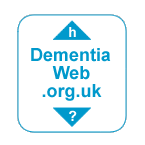Dementia Drugs
Medications used in the treatment of dementia fall into two main categories, those that aim to slow the progression of the disease symptoms (see below), and those that your doctor think may help make the illness easier to live with. You may be interested to read the Alzheimer's Society Factsheet about drugs used to relieve behavioural symptoms.
Drug Treatments for Alzheimer's Disease
At present no drug treatments can provide a cure for Alzheimer's disease. However in recent years several drugs (Aricept, Exelon, and Reminyl), have been developed that assist the transmission of nerve impulses within the brain. For some people these drugs will temporarily slow the progression of Alzheimer's symptoms in the early stages of the disease.
There is also a newer drug, called Ebixa, that works in a different way, and may slow progression of Alzheimer's symptoms later in the disease.
More detailed information on all four of these medications can be found in the Alzheimer's Society Factsheet Drug treatments for Alzheimer's disease.
The National Institute for Health and Clinical Excellence panel has decided not to change the original guidance stating that Alzheimer's drugs should only be prescribed to people in the 'moderate' stages of the disease, and not in the early or later stages.
Drugs information addendum, Jan 2007
Currently, in Oxfordshire, NHS prescriptions of these dementia drugs are initially given through the Memory Clinics only. This allows a thorough clinical assessment of each person to take place before and after prescribing takes place. In this way the Memory Clinic is able to ensure appropriate treatment is given.
The National Institute for Health and Clinical Excellence (NICE), is a government advisory committee that has the responsibility of recommending whether or not the dementia drugs remain available on the NHS. Your doctor should be able to advise you about the current guidance. If the drug your doctor recommends is not currently available on the NHS, private prescriptions can be obtained from consultants, GPs or private hospitals (costs may vary).
The Royal College of Psychiatrists public information leaflet Drug Treatment of Alzheimer's disease has information on these drugs, and also includes information about other possible treatments.
Repeat Prescriptions, Collection Services, and Dossette Boxes
Remembering to take medication at the right time, or to reorder regular medications before they run out, can be difficult. Ask your doctor’s surgery or pharmacy about how repeat prescriptions and prescription collection services might make getting your medication easier.
The chemist should also be able to advise you about dossette boxes, which are special boxes with separate pill compartments for different times of the day and days of the week. These can help people to remember to take tablets at the right time. Automatic versions are also available; the dispenser beeps and a small opening allows access to the tablets when they are due to be taken. There are medication reminders and dispensers on the ‘atdementia’ product pages http://www.atdementia.org.uk
Drug Trials
Research into dementia drugs is ongoing. From time to time there may be the opportunity to take part in dementia drug trials. In drug trials not all participants will be given the medication being tested, as a control group is required, who receive a placebo instead.
If you are interested in taking part in dementia research you may wish to contact the Oxford Project To Investigate Memory & Ageing (OPTIMA).
Complementary and Alternative Medicine
Some people feel that complementary or alternative medicine could help people with dementia. Complementary and alternative therapies include aromatherapy massage, music therapy, and nutritional supplements. More information is available in the Alzheimer's Society Factsheet Complementary therapies and dementia.
Local Music Therapy Service (funded by Guideposts Trust)can offer music therapy through three different services:
Music therapy in HeadingtonOxford Music therapy in your own home
Music therapy in your residential home
For more information about any of the music therapy services described above, please contact:
Pemma Spencer Chapman on 01865
775520.
More information is available in the Alzheimer's Society Factsheet Complementary therapies and dementia and Complementary and Alternative Medicines from The Royal College of Psychiatrists.

